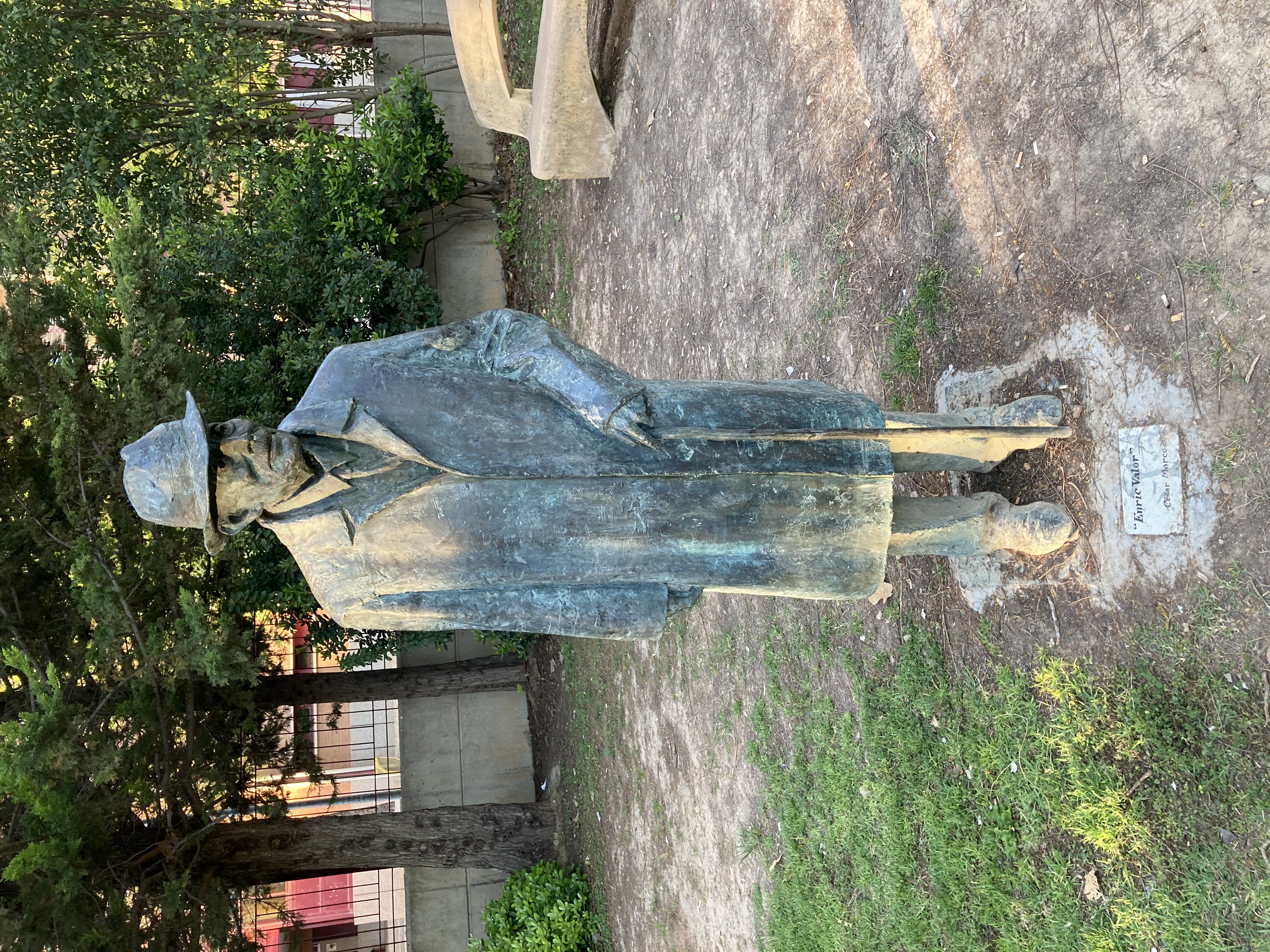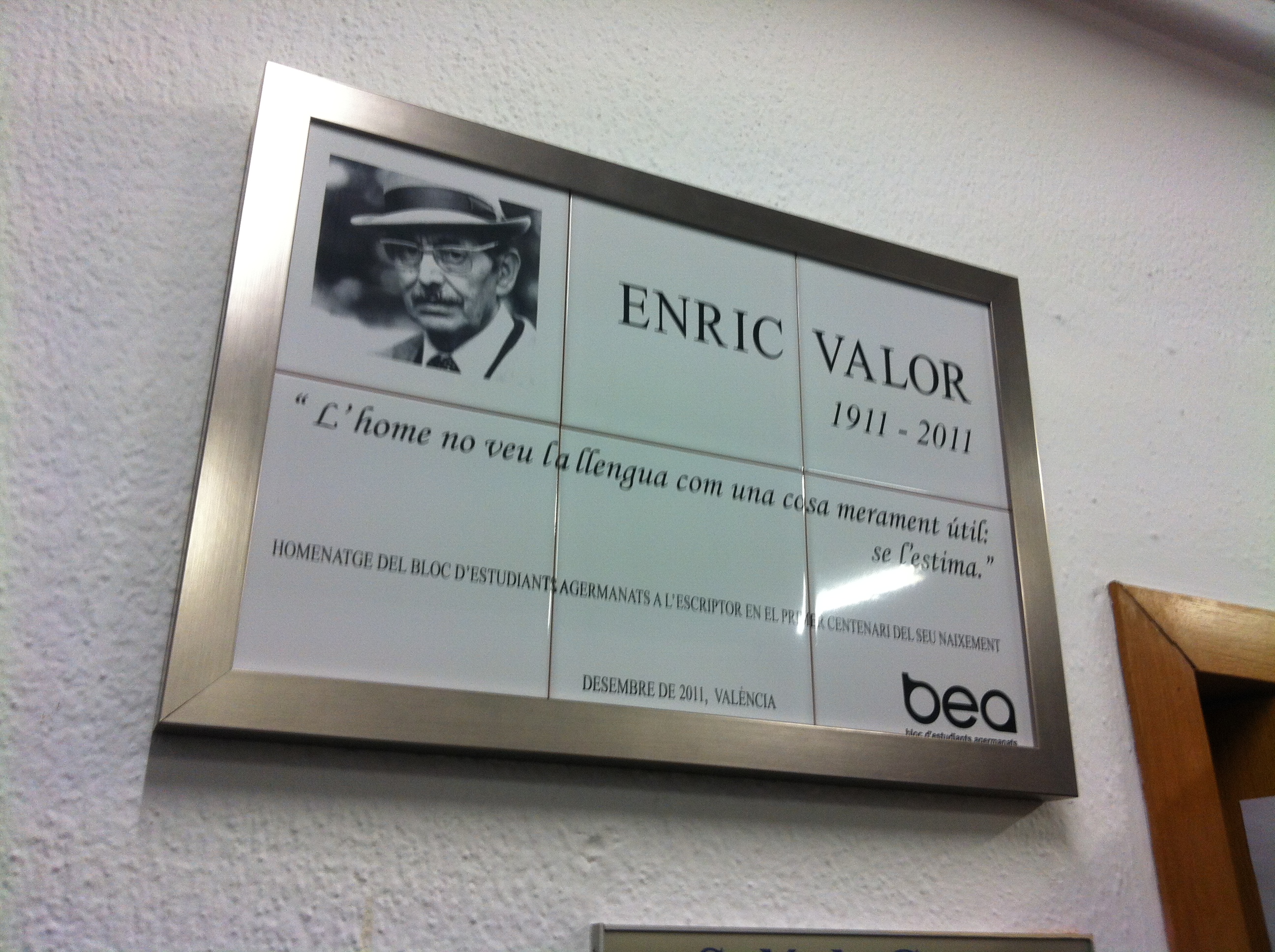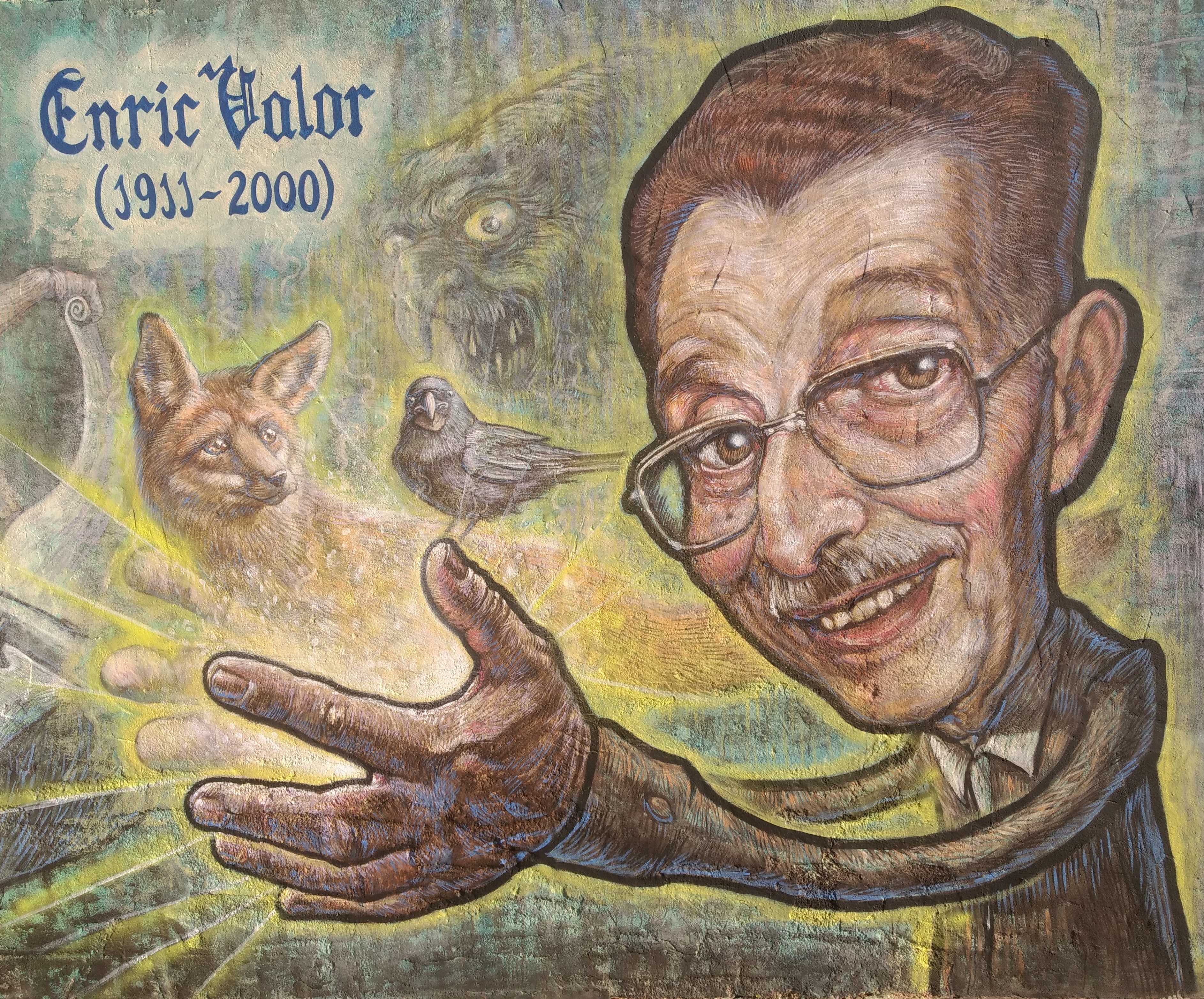1. Overview
Enric Valor i Vives (Enric Valor i Vivesenˈriɡ vaˈloɾCatalan, 1911-2000) was a prominent Valencian narrator and grammarian whose life and work were dedicated to the preservation, recovery, and standardization of the Valencian language and culture. Born in Castalla, Alicante, Valor became a key figure in the linguistic and literary landscape of the Valencian Community, particularly after the Spanish Civil War. His significant contributions include extensive lexicographical work, the compilation of essential grammatical references, and the collection of traditional Valencian folk tales, most notably Rondalles valencianes. A committed political activist, he advocated for Valencian autonomy and supported the Second Spanish Republic, enduring imprisonment under the Franco regime for his convictions. Following the dictatorship, Valor received widespread recognition and numerous honors, cementing his legacy as a central figure in the cultural and democratic development of the Valencian-speaking territories.
2. Biography
Enric Valor i Vives's life journey was marked by a deep commitment to Valencian language and culture, spanning periods of political activism, literary creation, and linguistic scholarship.
2.1. Early Life and Education
Enric Valor was born on August 22, 1911, in Castalla, a town in the Alcoià comarca of the Province of Alicante, Spain. He came from an affluent family. By the age of 19, in 1930, Valor began his career as a journalist.
2.2. Journalism and Early Career
Valor started his journalistic endeavors in Alicante, contributing to El Tio Cuc, a satirical newspaper published in Valencian. During this period, he honed his writing skills, learning Valencian orthography and grammar, despite his early contributions sometimes being written in a "Spanish-ized" Catalan with spelling errors. He later moved to the city of Valencia, where he worked for nationalist newspapers such as La República de les Lletres, El Camí, and El País Valencià.
2.3. Political Activism and Imprisonment
During the Second Spanish Republic, Valor became increasingly involved in political activities. His primary political objective was to achieve autonomous status for the Valencian Community. When the Spanish Civil War erupted, he actively supported the Spanish Republic.


Following the war, with the establishment of the Franco regime, Valor initially reduced his overt political engagement to focus on literature. However, in the 1960s, he resumed his involvement in underground political activities related to Valencian nationalism. This led to his arrest and imprisonment as a political prisoner under Francisco Franco's dictatorship from 1966 to 1968. His unwavering commitment to his ideals was evident, as he reportedly stated upon his release that "nothing was learned," indicating his steadfast resolve despite his incarceration.
2.4. Later Life and Recognition
After his release from prison, Enric Valor continued his work, notably participating in the founding of Gorg (meaning "Whirl" in Valencian), one of the first Valencian-language magazines to be published in the post-war period. With the end of Franco's dictatorship, Valor was finally able to freely express his opinions and disseminate his literary and linguistic works. He received numerous significant literary and linguistic awards from across the Catalan-speaking territories. In the 1990s, there was a movement among some Valencian cultural groups to nominate Valor for the Nobel Prize in Literature, though this initiative did not come to fruition before his death.
2.5. Death
Enric Valor i Vives passed away suddenly on January 13, 2000. His death marked the end of a prolific career dedicated to the Valencian language and culture.
3. Linguistic Contributions
Enric Valor's linguistic work was fundamental to the revitalization and standardization of the Valencian language, encompassing lexicography, grammar, and the promotion of its normative use.
3.1. Lexicography and Dictionary Work
Valor's earliest linguistic contributions appeared in the weekly magazine El Tio Cuc in Alicante. He played a crucial role in the development of the Catalan-Valencian-Balearic Dictionary, an inter-dialectal dictionary of Catalan, under the directorship of Francesc de Borja i Moll. His specific contribution involved compiling and incorporating a significant amount of lexicon from the Southern Valencian regions, enriching the dictionary's scope. His literary works, such as Rondalles valencianes, also served as a rich source of vocabulary.
3.2. Standardization of Valencian
Alongside figures like Carles Salvador and Manuel Sanchis Guarner, Enric Valor was a principal promoter of the standardization of the Valencian language. He authored several influential works that became essential teaching materials and references for Valencian speakers. These include:
- Curs de la llengua valenciana (1961), published in the magazine Gorg.
- Millorem el llenguatge (1971), which translates to "Let's Improve the Language."
- Curso medio de gramática catalana referida especialmente al País Valenciano (1973), a medium course on Catalan grammar specifically tailored to the Valencian Country.
In 1983, Valor published La flexió verbal (Verbal Inflection), a comprehensive work that systematically summarized the widely dialectized Valencian verbs. This book became the primary reference for the normative use of verbs in Valencian and continues to be used as essential teaching material for students in the Valencian Community.
4. Literary Works
Enric Valor's literary output significantly contributed to Valencian narrative, particularly through his collection of folk tales and his novelistic achievements.
4.1. Folktales (Rondalles)
Valor's most widely recognized literary contribution is Rondalles valencianes (Valencian Folktales), published between 1950 and 1958. This collection compiles and retells 36 popular Valencian oral tales, transforming them into literary narratives. Other works written in a similar style include Narracions de la Foia de Castalla (Tales from the Foia de Castalla), published in 1953, and Meravelles i picardies (Wonders and Mischiefs), published between 1964 and 1970.
4.2. Novels
Valor was also a notable novelist. His first novel, L'ambició d'Aleix (Aleix's Ambition), was begun between the 1940s and 1950s but underwent extensive rewriting before its eventual publication in 1960.

Perhaps his most important novelistic achievement is the Cicle de Cassana (Cassana Cycle), a trilogy comprising three novels:
- Sense la terra promesa (Without the Promised Land) (1960)
- Temps de batuda (Time of the Round-up) (1983)
- Enllà de l'horitzó (Beyond the Horizon) (1991)
The Cicle de Cassana trilogy was written with the aim of recovering the collective memory of the period between 1916 and 1939, which had been suppressed and obscured under the dictatorship. Additionally, Valor published the novel La idea de l'emigrant (The Idea of the Emigrant) in 1982.
5. Awards and Honors
Enric Valor i Vives received numerous awards and honors throughout his life in recognition of his profound contributions to Valencian literature and linguistics:
- 1983: Sanchis Guarner's Award (Premi Sanchis Guarner) from the Valencia Province Council.
- 1985: Valencian Arts Award (Premi de les Lletres Valencianes) from the Valencia City Council.
- 1986: Appointed Member of the Philological Department in the Institut d'Estudis Catalans.
- 1987: Catalan Arts Honored Award (Premi d'Honor de les Lletres Catalanes) from the Òmnium Cultural de Barcelona.
- 1987: Appointed Member of the Advisory Board in the Interuniversitary Institute of Valencian Philology (Institut Interuniversitari de Filologia Valenciana).
- 1993: Awarded Doctor Honoris Causa by the Universitat de València.
- 1993: Received the Saint George's Cross (Creu de Sant Jordi) from the Generalitat de Catalunya.
- 1996: Awarded Miquelet d'Honor from the Societat Coral El Micalet, de Valencia.
- 1997: Received the Premi Cavanilles from the Valencian Institute of Nature and Hiking (Institut Valencià d'Excursionisme i Natura).
- 1998: Awarded Doctor Honoris Causa by the Universitat de les Illes Balears.
- 1999: Awarded Doctor Honoris Causa by the Universitat Jaume I from Castelló.
- 1999: Awarded Doctor Honoris Causa by the Universitat d'Alacant.
- 1999: Awarded Doctor Honoris Causa by the Universitat Politècnica de València.
6. Impact and Legacy
Enric Valor's work has left an indelible mark on Valencian culture, language, and identity. His tireless efforts in collecting and preserving traditional Valencian folk tales, coupled with his rigorous linguistic scholarship, were crucial in safeguarding and promoting the Valencian language during a period of suppression. His grammatical works continue to serve as fundamental references and educational tools for Valencian speakers.
Valor's commitment to Valencian cultural and political autonomy, demonstrated through his journalism and political activism, including his imprisonment, solidified his status as a symbol of resistance and cultural resilience. Today, his legacy is widely commemorated throughout the Valencian Community, with numerous streets, squares, schools, and associations bearing his name. The movement in the 1990s to nominate him for the Nobel Prize in Literature further underscores the high regard in which he was held for his extensive contributions to literature and linguistics.